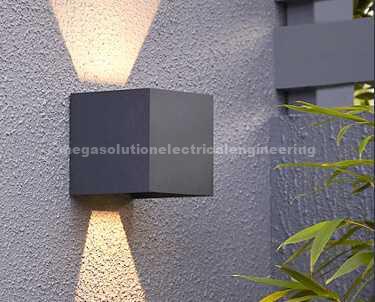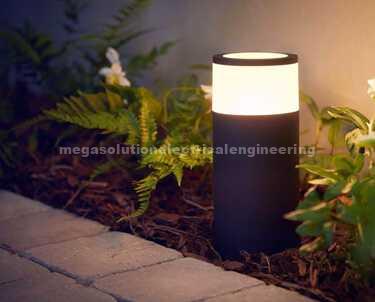FAQ
(FAQ) Always Hire Professionals
FAQ, No matter urgent any electrical repairs seem, it’s never okay to attempt to handle them on your own. Trying to take care of electrical problems without professional training is extremely dangerous. If you or someone else aren’t hurt during your attempt, there’s still a chance that you’ve left something undone that poses a huge risk to you, your home, or your family. In fact, faulty electrical wiring is the number one cause of house fires in the United States, according to the National Fire Protection Agency. So in order to make sure that your home is safe, always rely on a professional for any electrical service.
How often should I have my electrical system inspected?
Can I do my own electrical work at home?
How can I save energy and reduce my electricity bill?
What’s the importance of grounding in electrical systems?
What are the warning signs of faulty wiring in a home?
What should I do if my circuit breaker keeps tripping?
Why does my generator keep tripping?
Why does my RCD keep tripping?
What’s the lifespan of an RCD or RCCD?
What is an RCD, and why do I need one?
Why is my generator overheating, and how can I prevent it?
What is the difference between an RCD and an RCCD?
How often should I test my RCD/RCCD?
What is the difference between a fuse and a circuit breaker?
What size generator does my business need?
How often should my generator be maintained?
What size generator should I install?
How does a standby generator automatically turn on during a power outage?
What earthing resistance values are required for commercial and industrial installations?
Are there specific local codes for earthing resistance values?
What soil treatments can help achieve the required earthing resistance values?
How often should I treat the soil for effective grounding?
Why is my generator overheating, and how can I prevent it?
Why does my generator keep tripping?
Send us your questions or read our FAQ below
Ask Your Question


(FAQ) Electrical Contractors
Electricity is arguably the most valuable resource we have in our modern society. Without electricity, most of the things we do and rely on on a daily basis wouldn’t be there. So while electricity is so ingrained into our lives that we can take it for granted and hardly notice it’s there, if there’s an electrical problem, it can be difficult to notice anything else. Our electrical repair technicians know what a hassle any electrical problems can be, which is why we’ll always respond to any requests for service as quickly as possible. And because all of our technicians are licensed, background checked, and professionally trained, you’re guaranteed to receive the best quality service and workmanship available when you call us. We can assist with all your electric needs including:
- Generator Installation and Repair Services
- Best Industrial Electrical Automation services
- Best Electric Motor Rewinding Services
- Earthing Installations and Upgrades Services
- Electro-Mechanical services
- Lighting Installation
- Residential Electrical Installation Services
- Electrical Panel Replacement
- LED Lighting
- Industrial electrical Installation Services
- Electrical Troubleshooting and Repairs
- Professional Electrical Support and Training Services
- Electrical Wiring Design and Engineering Services
- Electrical Energy and Power Auditing Services
- Distribution Panels Fabrication and Upgrades Services
- Professional electrical contractors in Ghana
- Commercial electrical Installation Services
- Licensed Electricians in Ghana
- Home Wiring
- Consulting and Advisory services
- Electrical Wirings Testing and Inspection Services
- Wiring Replacement and Upgrade Services
- Residencial, commercial and Industrial wiring Services
(FAQ)
When searching for a reliable electrician, call us at +233 24 415 1232 We specialize in Electrical Installation (Commercial, Residencial and Industrial), Electrical Contractors, Generator Repairs (Installation and Maintenance), Motor Rewinding, Industrial Automation, Power Panel upgrades, and even hot tub wiring!


